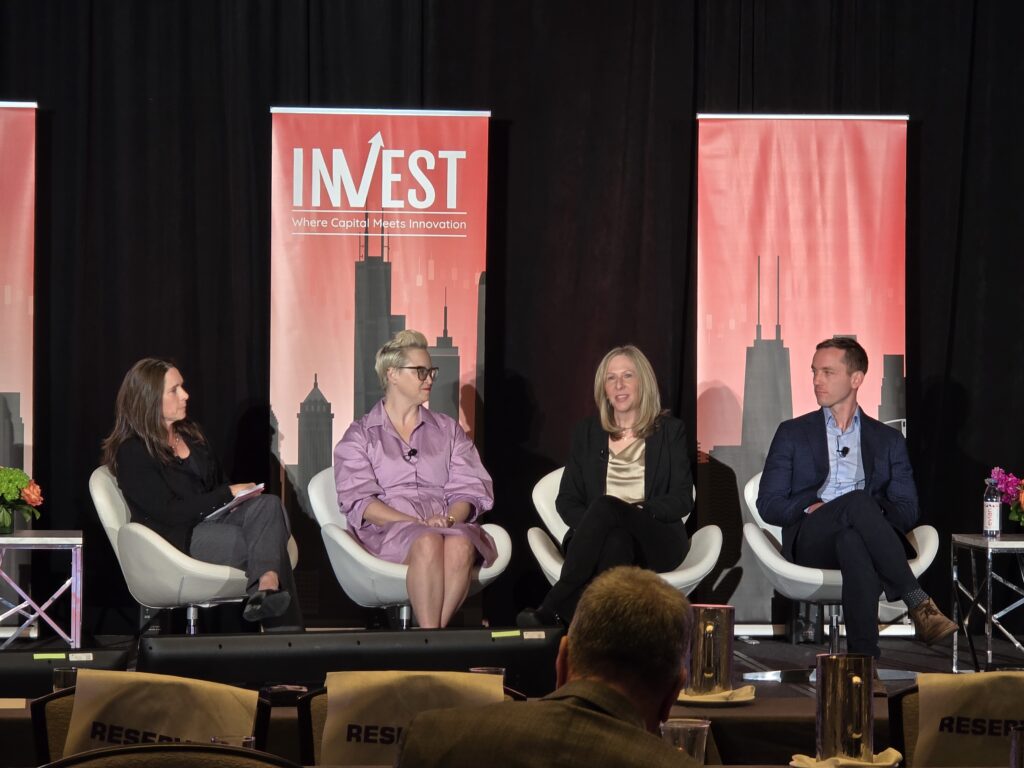
The women’s health space has made several advancements, with investments coming from the federal government and more emphasis being placed on women’s issues other than maternal health. But the industry still has a long way to go, several executives said on a Wednesday panel at the MedCity News INVEST conference held in Chicago.
What frustrates Melissa Lederer, chief experience officer and managing partner of mHUB and mHUB Ventures, is that there are still a lot of “risk-averse” investors. Lederer is an investor herself and was one of the panelists.
“We are finding lots of companies that are making great progress, but finding it very difficult to get lead investors in their first rounds, whether it be a pre-seed round or Series A round,” Lederer said. “That’s a challenge.”

At ViVE 2024, Panelists Share Prior Authorization Progress and Frustration in Payer Insights Program
At the Payer Insights sessions on Day 1 of ViVE 2024, a panel on prior authorization offered compelling insights from speakers who shared the positive developments in this area after years of mounting frustration. Speakers also shared challenges as they work with providers to figure out how policy developments and technology will work in practice.
For Joe Connolly, co-founder and CEO of Visana Health, the most frustrating thing is that “health plans and self-funded employers want a one-year ROI on a medical cost basis,” and that clinical quality will often get “pushed to the side.” Visana Health is a virtual platform that treats women for a range of conditions, including menopause, endometriosis, fibroids, polycystic ovary syndrome, contraception and urinary tract infections.
“If you look at menopause, there may not be a huge cost in menopause claims per se, but there’s a huge cost to that woman’s life in terms of downstream consequences: osteoporosis, dementia, cardiovascular disease,” he said. “But because that’s on a five to 10-year time horizon, I often encounter some reticence in investing in those types of areas. I’m a big believer that we actually need to have better quality metrics embedded into these health plans, HEDIS metrics that they’re held accountable to because if we can measure these things, they will start to comply with those things and invest in those areas.”
However, it’s hard to “make the case” for these quality metrics because there is a lack of investment in research, Connolly added. There aren’t strong randomized controlled trials on women’s health topics.
“In fact, there are almost confusing and conflicting randomized controlled trials that really muddy the ability for us to get really strong quality metrics so that we’re not just thinking about cost but we’re truly thinking about quality and the woman’s health across her entire life and all the downstream consequences,” he declared.

Unlocking Transparency in PBM Pricing
The TSX Venture Exchange has a strong history of helping early-stage health and life sciences companies raise patient capital for research and development.
To Melissa Dennis, chief medical officer of Partum Health, the lack of money in the women’s health space is also a frustration. Partum Health supports families during fertility, pregnancy and postpartum.
“Physicians like to do things that are evidence-based, but we have to get the new evidence from somewhere,” Dennis said. “Until we have this buy-in to early innovation and we have the funding to do this, we are going to move at a snail’s pace when it comes to changing outcomes.”
She added that women’s health issues need to be talked about more.
“Let’s normalize talking about things like endometriosis, like PMS,” she argued. “They’re not glamorous. … But they are life-changing. They take people out of work, they take people away from their families. So let’s normalize using anatomically correct terms. Let’s normalize talking about these things so that when people like us walk into a roomful of VCs, we don’t see those eyes glaze over because it’s an uncomfortable conversation to be had.”












